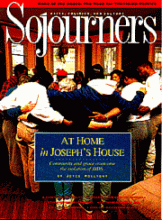In discussing his controversial film JFK, director Oliver Stone often says that he hopes it will replace the Warren Commission as the prevailing public myth about the Kennedy assassination.
When he talks about "myths," Stone doesn't mean falsehoods. Myths in this sense are the stories we tell--individually or collectively--in order to make sense of our lives. To explain this point Stone refers to the way that Uncle Tom's Cabin by Harriet Beecher Stowe became the prevailing myth, or paradigmatic story, about slavery, only to be displaced by Gone With the Wind, which was in turn displaced by Roots.
That is the measure of the late Alex Haley's achievement--that he could, and should, be mentioned in the same sentence with Harriet Beecher Stowe. Stowe wrote the "little book that started the big war." And Haley wrote a book-turned-mini-series that restored the African heritage to the children of the black diaspora.
The night that, during the first episode of Roots, the infant Kunta Kinte's father held him up to the stars of the West African sky can be named as the night that blacks in America started becoming African Americans. In the evenings that followed, the mass of white Americans too, most of whom have no ancestral link to slavery, came face-to-face with that real-life monstrosity which still runs screaming through our nightmare history.
Roots changed the world. Setting aside, for now, the trans-ethnic passion for genealogy that it aroused, Haley's family saga changed the way we think about our national identity and our common story. In lit-crit terms, Roots was derivative (to the point of plagiarism, it was claimed) and cheap melodrama, with lots of stereotypical characters, emotional manipulation, and simplistic morals.
Read the Full Article

